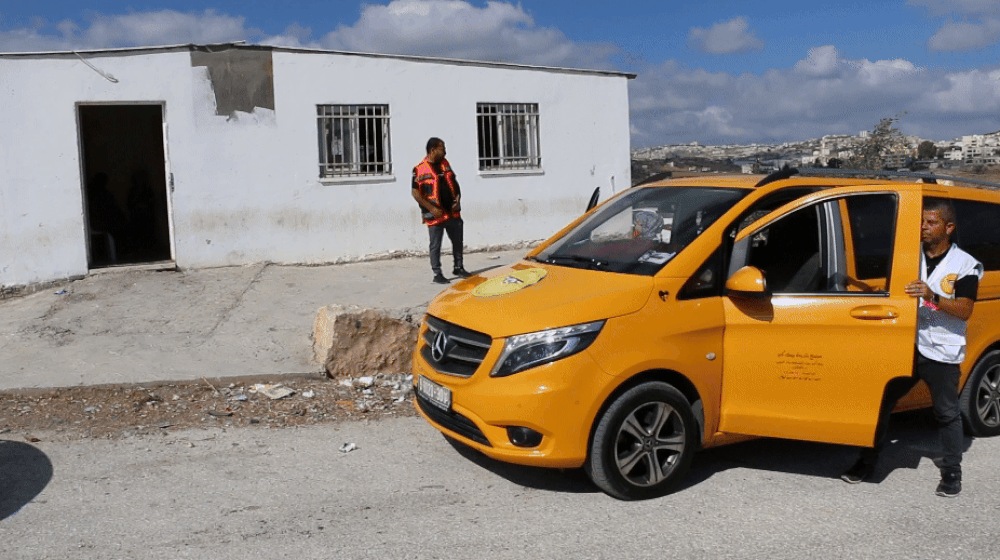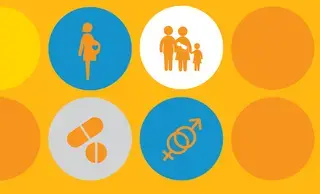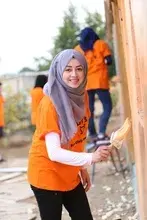Mobile healthcare teams courageously navigate areas in Area C of the West Bank, controlled by the Israeli military, to deliver essential medical services to isolated and vulnerable communities. These regions not only face movement restrictions but also experience violence from settlers, creating significant barriers to accessing basic healthcare. The dedicated teams from the Palestinian Medical Relief Society (PMRS), supported by UNFPA and working in coordination with the Palestinian Ministry of Health, reach villages of 2,000 to 3,000 residents. Limited by resources, they visit each community only once a week for a full day, typically covering three to four villages in a single day and spending about two hours in each. This is due to the shortage of available mobile clinics (HR and supplies) to cover the needs of all communities in need) In a landscape where building permanent clinics is prohibited by Israeli authorities, these teams adapt by providing care in makeshift settings—whether along roadsides, in rundown clinics, or even in caves and tents. Despite the challenges, they deliver a wide range of primary health care and sexual and reproductive health services, from antenatal and postnatal care to family planning, including counseling on contraceptive options and safe practices, and psychosocial support. They also play a critical role in detecting and responding to gender-based violence, while fostering community resilience through health awareness sessions and first aid training. In this story of determination, these healthcare heroes are not just providers; they are lifelines in a landscape filled with challenges.
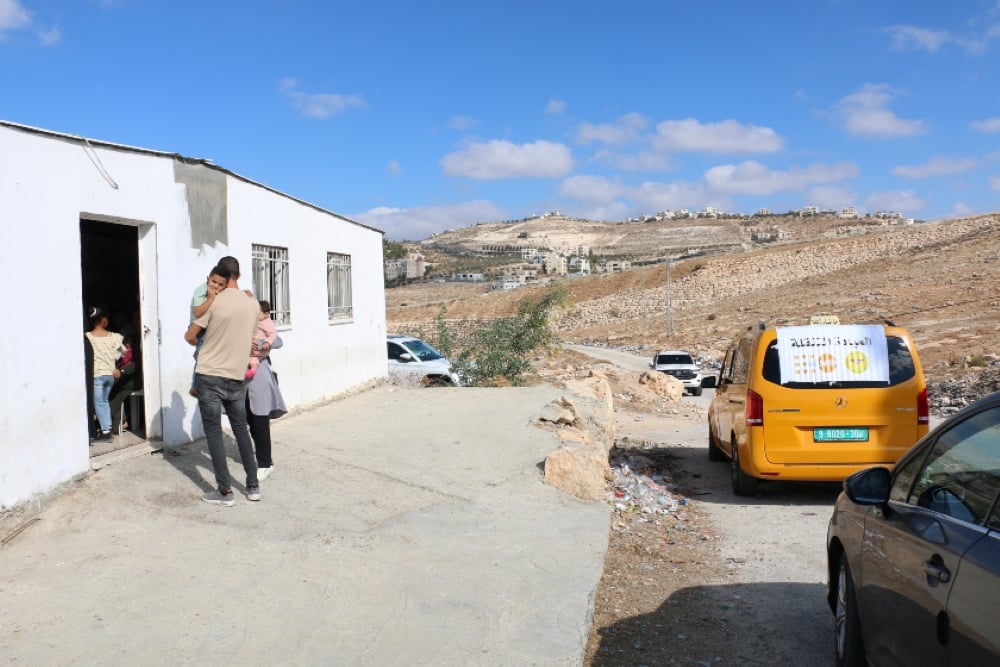
A Struggle for Health
In the small village of Bethlehem’s Al Uqban, Mariam, 55, waited in line as the mobile healthcare team arrived at the clinic. Despite the team's efforts, the challenges of accessing healthcare remained significant. “It is great they are here, but once a week is not enough. Some days there are 50 women here—maybe 30 get medicine and 20 don’t because they run out.”
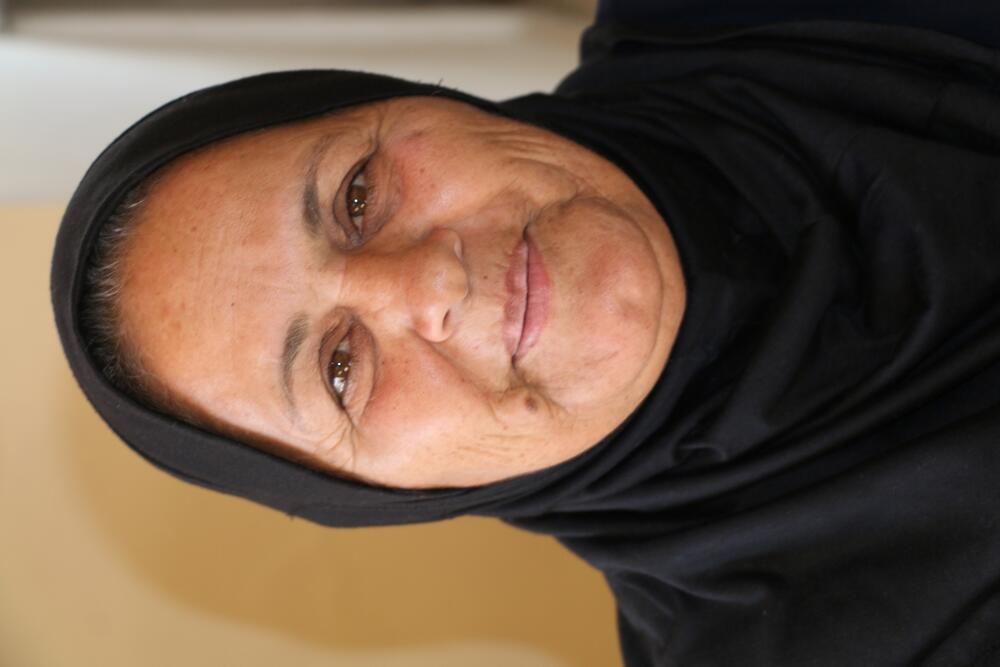
For Mariam and her neighbors, access to healthcare is a battle fought every day. The closest clinic is two hours away by foot, a journey fraught with obstacles. Before Israel’s war on Gaza, the entrance to the village was open but has remained closed by Israeli authorities since. Duaa, 31, explains, “ Twice I brought my son who had a fever here to the mobile clinic but they didn't have any fever medication left to give him. As the roads are closed, the nearest health facility is at least an hour and a half to two hours walk away,” she explains. “If we go, we need to take two taxis and then walk the rest of the way, or walk all the way. Before, it took ten minutes by car.”
Health in Crisis
Out of some 189 communities in need in Area C, six are unable to receive visits from mobile clinic healthcare teams due to funding challenges. For those that do, the capacity of the teams and clinics is insufficient to meet the communities’ needs. An estimated $18,000 to $24,000 per month would be needed to reach the six that remain unserved. As the current funds usually only cover the mobile team services for one year, if the funding challenges persist, by 2025, the number of communities without mobile clinic services will rise to 96.
Khawla, 50, shared her experience with the mobile healthcare teams. “The teams are all nice. They are always helpful. I always feel like they are happy to be here.”
Each week, the mobile teams aim to visit communities like Al Uqban, but the need is overwhelming, and the resources limited. Duaa, a young volunteer, spoke of the harsh realities. “The sad truth is, if anyone needs any help urgently, they will probably die before they are able to get to a hospital.”
This grim situation highlighted a broader issue: access to healthcare, especially sexual and reproductive health services, is a privilege denied to many in these communities. These mobile teams provide care these families would otherwise not be able to access.
A Call for Change
As the mobile clinic prepared to leave, Dalal, 38, who once volunteered with the team, spoke how she is now one of the people who get help from the mobile healthcare team. “After my son was born, I had to stop volunteering, in order to care for him. My son was born with diabetes,” she explained. “Here, I get medicine for him for free. Without this help, we couldn't do it. There is nowhere else for us to go.” The team even once saved Dalal herself when she was very ill, her mother Ibtisam, 52, remembers. “With their help, we could get her there in time. This team has been a lifesaver for me in so many ways.”
For many, the teams offer more than just a service—they are a source of hope. Yet the need is great, as Naheel, 56, explains, “The clinic is a comfort. But we need more. We are so far from any doctors or hospitals.”
The fight for healthcare must continue. UNFPA and its implementing partners are dedicated to ensuring that vulnerable women and families in the West Bank have access to essential healthcare services, with a strong focus on sexual and reproductive health. They support four mobile clinics deployed in Area C across four governorates: Hebron, Bethlehem, Qalqilya, and Tulkarem, reaching over 30,000 residents in17 communities. These clinics provide crucial services such as family planning, maternal health care, and STI screenings, addressing the specific reproductive health needs of women and adolescents. Despite significant challenges, UNFPA remains committed to supporting mobile clinics and their teams, who provide vital health services to those cut off from conventional healthcare, offering a lifeline to those who need it most. By prioritizing sexual and reproductive health, UNFPA aims to empower individuals, improve health outcomes, and uphold the rights of women and families in these marginalized areas.

